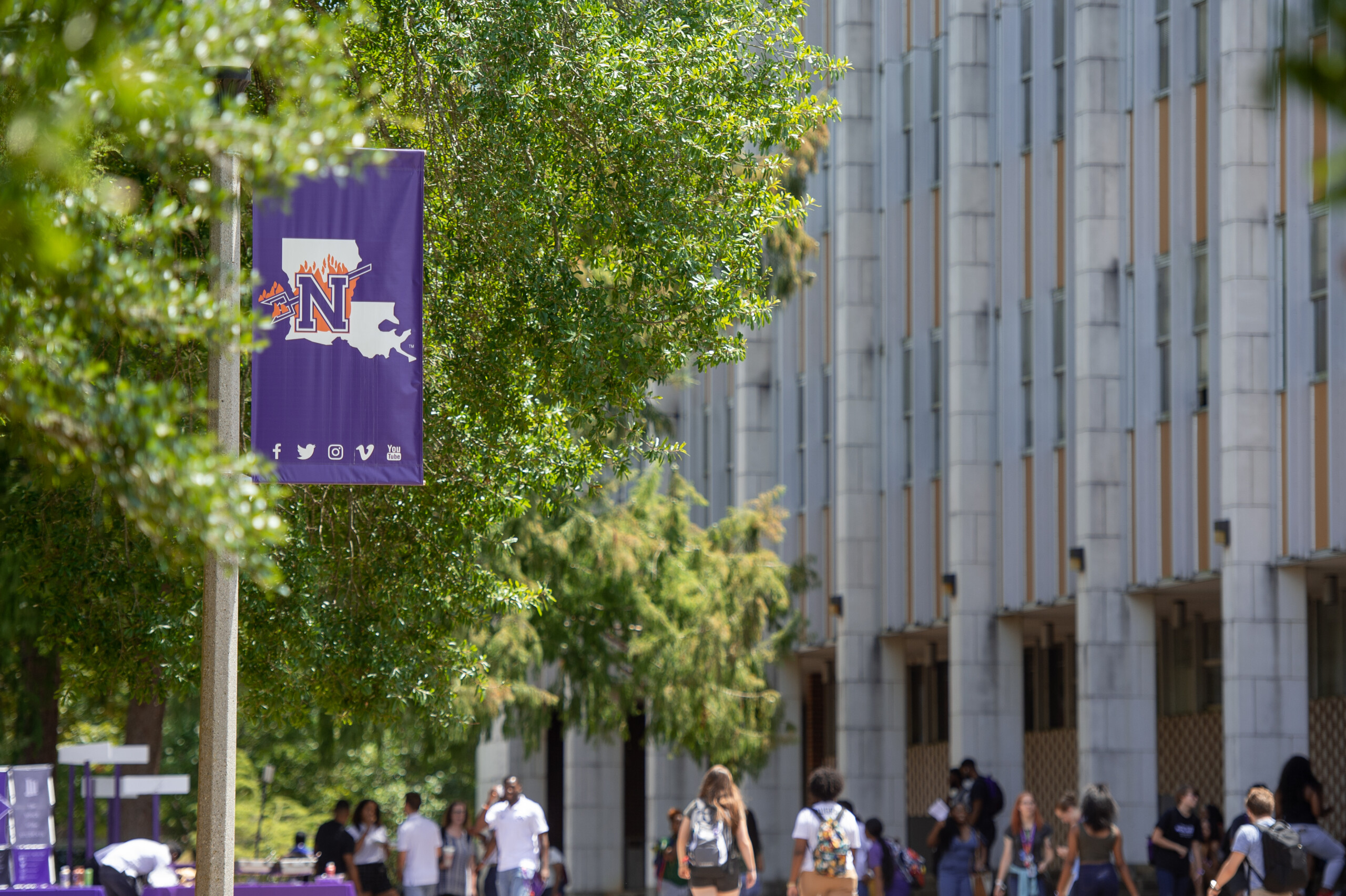NATCHITOCHES – Northwestern State University has been awarded a Title III “Elevate U” grant in the amount of $2,072,425 to support initiatives aimed at increasing retention and graduation rates for low-income students.
“Essentially, the grant will help students make purposeful choices in selecting a field of study, determine the most appropriate academic path and ensure they are career-ready upon graduation,” said NSU President Dr. Marcus Jones.
Title III grants are awarded by the U.S. Department of Education to help eligible institutions expand their capacity to serve low-income students. The grant will enable NSU to improve academic advising and address postsecondary education access, affordability and post-enrollment success at NSU, where many first-time freshmen are classified as low-income.
According to data, average academic performance for low-income students is lower than those of students who are not low-income and lower gateway course success rates and lower GPAs may contribute to students needing more time to graduate. Low-income students have significantly lower four-year graduation rates compared to rates for students who are not low-income.
According to Provost and Vice President of Academic Affairs Dr. Greg. Handel, NSU will implement a two-pronged five-year plan to meet the needs of low-income students, which includes first-generation students who are the first in their families to attend college.
“Our first priority is to improve academic advising and support,” Handel said. “Strategies will include academic advising, guided pathways to degree completion and a more integrated advising, tutoring and career planning experience. First generation students will be a major component of this grant’s impact.”
Handel said NSU has a user-friendly hands-on approach with academic advising already in place and the grant will provide extra layers of support.
“Students have academic advisors in their majors who guide them through course selection and registration each semester and assist them in networking with future internship placements,” he said. “This grant will assist first generation and low-income students with tutoring and career-placement and strategies for success that are specifically driven by what these students need to succeed. The grant will enable students will grow academically, be involved socially and professionally across campus organizations and activities and learn strategies that lead to employment after graduation.”
The second component is to expand the first-year and second-year experience at NSU by implementing residential living learning communities to engage low-income students, build community and promote a sense of belonging.
“Living Learning Communities incorporate academic, leadership and career programs that include tutoring, peer mentor support, financial guidance, health and wellness, community building and proactive academic advising,” said Vice President for the Student Experience and Dean of Students Reatha Cox. “Resident mentors work within the residential communities to promote personal development, citizenship, campus involvement and familiarity with resources that available to help students.”
Administrators will track data, assess outcomes and provide state and federal reports to inform decision making and guide adjustments over the five-year program and beyond.
“Data shows that when students get involved, whether through academic organizations, service organizations or social organizations, the likelihood that they will graduate increases. We plan to implement programs where low-income students have opportunities to understand that they belong here, help them stay focused on their goals and develop not only academically, but as leaders on campus and in their communities,” Jones said.

